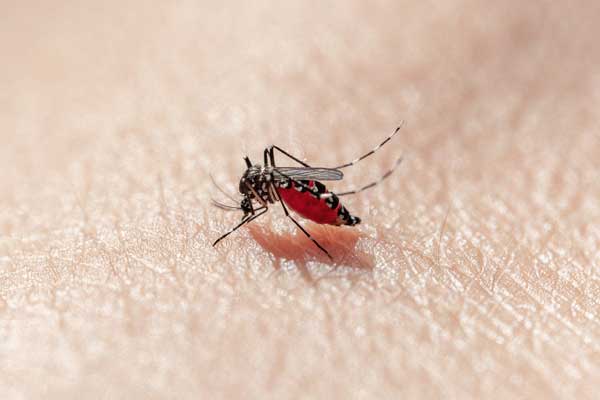Gastric cancer is the fourth most common cancer in the world, claiming the lives of about 650,000 people every year. But did you know that there are significant differences in the physical constitution of different populations in the incidence of gastric cancer?

Who are the high-risk groups for gastric cancer?
1. People infected with Helicobacter pylori
About 89% of non-cardia gastric cancers in the world are related to Helicobacter pylori infection! This bacterium is like a "destroyer", quietly invading your stomach through sharing meals, mouth-to-mouth feeding, etc., destroying the gastric mucosal barrier, and creating trouble step by step: from chronic inflammation to atrophic gastritis, to intestinal metaplasia, dysplasia, and eventually may develop into gastric cancer.
Studies have shown that if the infection lasts for more than 20 years, the risk of gastric cancer will increase by 6 times! Even if Helicobacter pylori is successfully eradicated, the gastric mucosal atrophy that has already formed may continue to develop. Therefore, if there are elderly people and children at home, you must pay attention to separate meals!
2. People with gene defects
Do you think gastric cancer is completely acquired?
In fact, about 12% of the risk of disease is related to heredity!
People with these three types of gene abnormalities should pay special attention:

- MUC1 gene: rs4072037 site mutation reduces the gastric mucosal defense function, and the risk of carriers increases by 1.8 times;
- ALDH2 gene defect: After drinking, acetaldehyde will accumulate in the body, and heavy drinkers have a 3.4 times higher risk of gastric cancer than normal people;
- Family aggregation: First-degree relatives with gastric cancer have a 2-3 times higher risk of disease. If combined with Helicobacter pylori infection, the risk will surge to 10 times.
3. People with unhealthy diets
Prefer high-sugar diets, pickled foods such as pickles, salted fish, etc., love to eat high-temperature barbecue (containing heterocyclic amine carcinogens), and insufficient intake of fresh vegetables, all of which will increase the risk of gastric cancer. The stomach likes light and fresh food. From today, eat more vegetables and fruits!
4. Smokers and drinkers
Tobacco and alcohol are a pair of "carcinogenic partners", especially those with ALDH2 gene defects mentioned above, the two are more harmful together. For the sake of your stomach, quit smoking and limit drinking!

5. Risk of related diseases
Precancerous lesions The cancer rate of patients with chronic atrophic gastritis is 8% in 20 years, and the risk rises to 10-20% when combined with intestinal metaplasia.
Metabolic diseases The relationship between diabetes and gastric cancer is not simple. Patients with obvious blood sugar fluctuations have an increased risk of intestinal gastric cancer. Controlling blood sugar is not only good for the pancreas, but also for the stomach!

Most gastric cancers are diagnosed in the late stage. Many people lack health awareness and do not pay attention to the early symptoms of gastric cancer (such as long-term abdominal distension, acid reflux, heartburn, black stools, inexplicable weight loss, etc.). They always think it is a minor problem and take some medicine to deal with it. When the symptoms become serious, they go to the hospital, which is often too late.
To prevent gastric cancer, focus on doing these three things
- Active screening People infected with Helicobacter pylori and those with a family history of gastric cancer should undergo a gastroscopy once a year; ordinary people over 40 are also recommended to undergo regular gastric cancer screening.
- Accurate prevention If conditions permit, you can do genetic testing and carry out personalized prevention based on the results. For example, people with ALDH2 deficiency must strictly abstain from alcohol, and people with high genetic risk should pay more attention to eradicating Helicobacter pylori.
- Healthy lifestyle habits Eat less pickled, barbecued, and high-sugar foods, and eat more fresh vegetables and fruits; quit smoking and limit alcohol; separate meals, use public chopsticks and spoons to reduce the chance of Helicobacter pylori infection.

The stomach is the most "hardworking" organ in our body, but it is also the one that needs the most care. Especially for high-risk groups, we must be vigilant and take precautions from now on.
If you have persistent stomach discomfort, go to the hospital for examination in time. Early detection and early intervention can keep you away from the threat of gastric cancer!

%20--%3e%3c!DOCTYPE%20svg%20PUBLIC%20'-//W3C//DTD%20SVG%201.1//EN'%20'http://www.w3.org/Graphics/SVG/1.1/DTD/svg11.dtd'%3e%3csvg%20version='1.1'%20id='图层_1'%20xmlns='http://www.w3.org/2000/svg'%20xmlns:xlink='http://www.w3.org/1999/xlink'%20x='0px'%20y='0px'%20width='256px'%20height='256px'%20viewBox='0%200%20256%20256'%20enable-background='new%200%200%20256%20256'%20xml:space='preserve'%3e%3cpath%20fill='%23FFFFFF'%20d='M194.597,24.009h35.292l-77.094,88.082l90.697,119.881h-71.021l-55.607-72.668L53.229,232.01H17.92%20l82.469-94.227L13.349,24.009h72.813l50.286,66.45l58.148-66.469V24.009z%20M182.217,210.889h19.566L75.538,44.014H54.583%20L182.217,210.889z'/%3e%3c/svg%3e)




